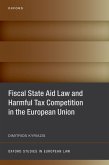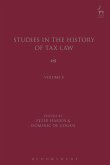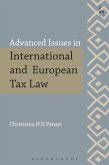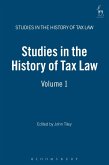This book seeks durable solutions for tax crime and is a great resource for the development of knowledge, policy and law on tax crime. The book uniquely blends current practice with new approaches to countering tax crime. With insights from the EU-funded project, PROTAX, which conducts advanced research on tax crimes, the book comparatively analyses the EU's tax crime measures and the Ten Global Principles (TGPs) on fighting tax crime by the Organisation for Economic Cooperation and Development (OECD).
The study critically examines how the TGPs can serve as minimum standards for the EU to counter tax crime such as tax evasion and tax fraud. The study also analyses how the anti-tax avoidance package can be graduated to fight tax crime in the EU. When escalated, the strengths of the EU tax crime measures and TGPs can form a fortress in which criminal law can be empowered to mitigate tax crimes with greater effect.
The book will be particularly useful for end-user stakeholders such as tax policy makers, LEAs, professional enablers as well as academics and students interested in productive interaction between tax, criminal and administrative laws.
The study critically examines how the TGPs can serve as minimum standards for the EU to counter tax crime such as tax evasion and tax fraud. The study also analyses how the anti-tax avoidance package can be graduated to fight tax crime in the EU. When escalated, the strengths of the EU tax crime measures and TGPs can form a fortress in which criminal law can be empowered to mitigate tax crimes with greater effect.
The book will be particularly useful for end-user stakeholders such as tax policy makers, LEAs, professional enablers as well as academics and students interested in productive interaction between tax, criminal and administrative laws.









